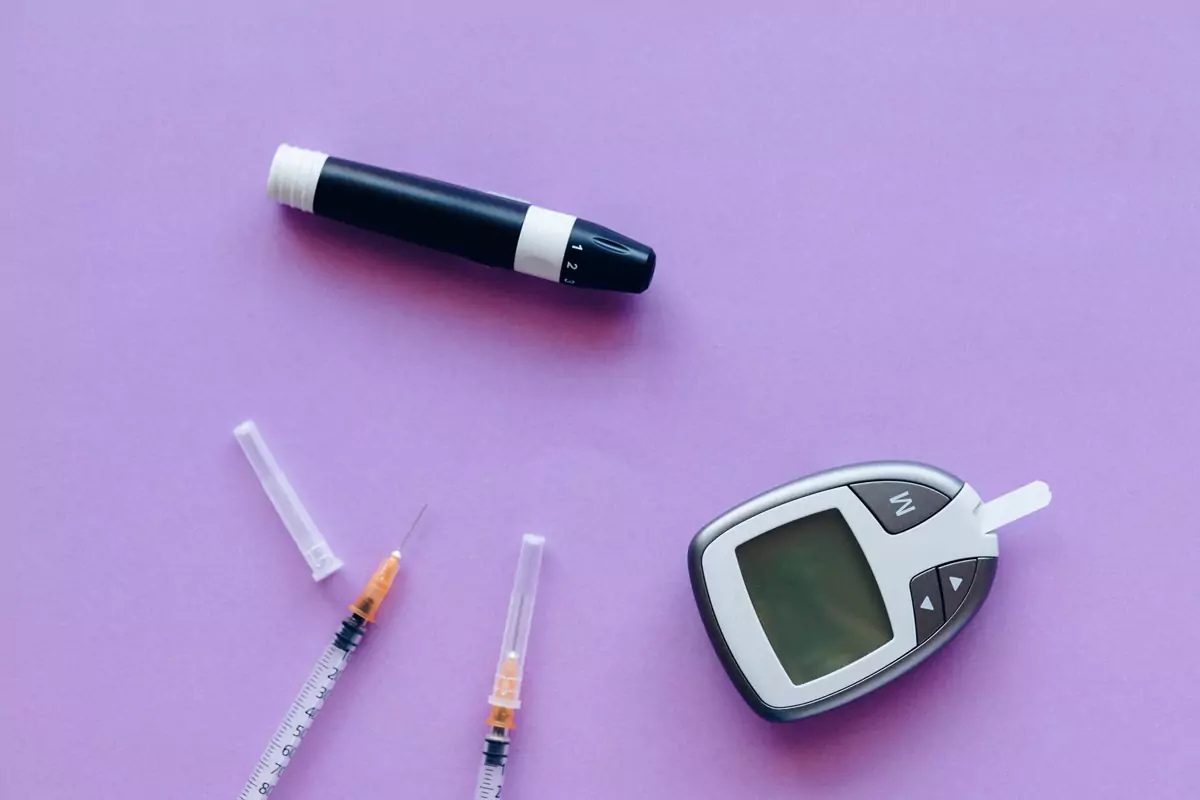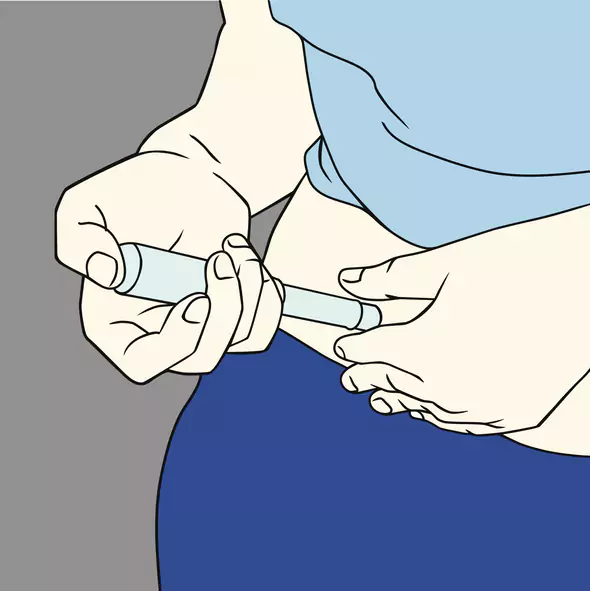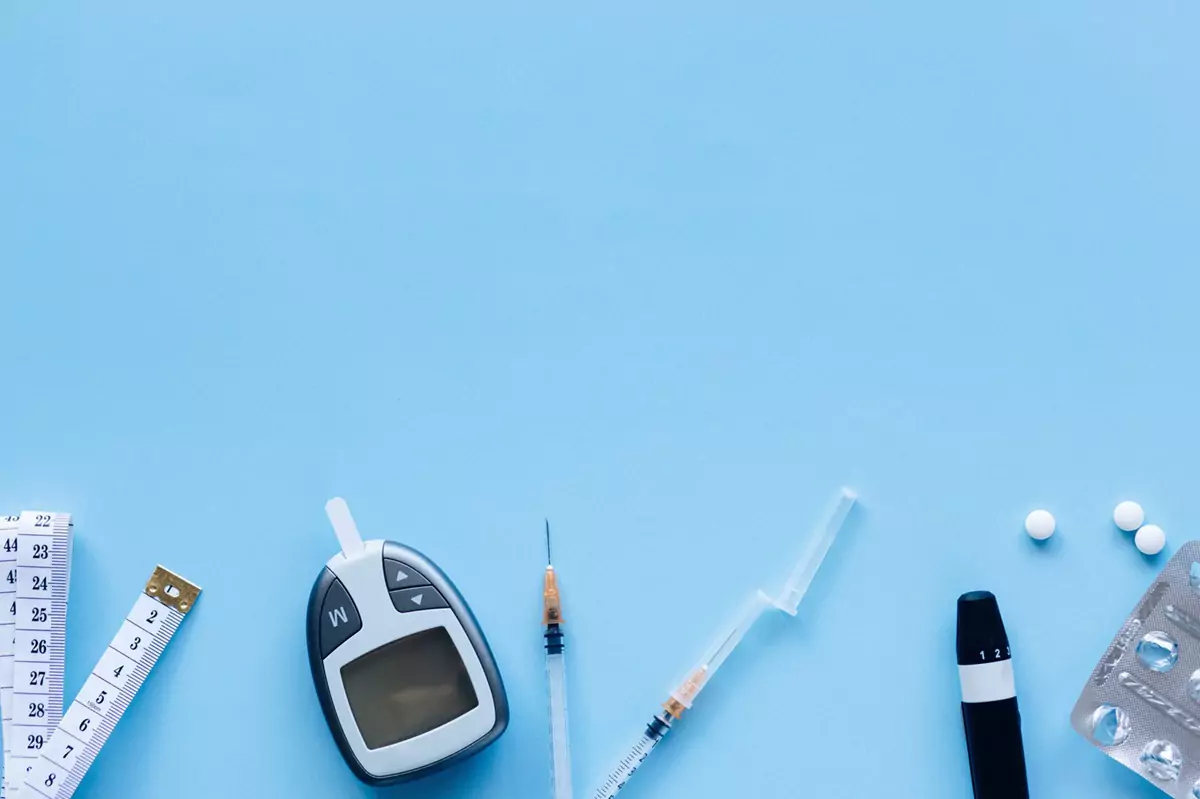






Victoza Side Effects: What to know


Table of Contents
- More Common Side Effects of Victoza
- Diarrhea
- Nausea and Vomiting
- Headache and Dizziness
- Low Blood Sugar
- Rashes
- Mild Side Effects of Victoza
- Fatigue
- Constipation
- Dry Mouth
- Allergic Reaction
- Sudden Changes in Mood
- Serious Side Effects of Victoza
- Thyroid Cancer
- Pancreatitis
- Kidney problems
- Frequently Asked Questions
- Victoza and Weight Loss - Are they connected?
- Victoza and Fatigue - Are they connected?
- Victoza and Hair Loss - Are they connected?
- Victoza and Burping - Are they connected?
- Victoza and Joint Pain - Are they connected?
- Conclusion
- About The Author
Are you considering taking Victoza to manage your type 2 diabetes but worried about its side effects? Victoza is a prescription medication used to treat type 2 diabetes. It helps lower blood sugar levels by increasing the amount of insulin produced by the body and decreasing the amount of sugar produced by the liver.
While Victoza can be an effective treatment for type 2 diabetes, you need to be aware of its side effects as a patient. Some common side effects of Victoza include nausea, diarrhea, and vomiting. These side effects usually go away within a few days of starting the medication. Other potential side effects include pancreatitis, kidney problems, and allergic reactions.
More Common Side Effects of Victoza
Have you ever taken Victoza for the treatment of type 2 diabetes? If so, you might be familiar with this medication's potential side effects. But what are the side effects of Victoza? Let’s find out.
Diarrhea
One of the most common side effects of Victoza is diarrhea. But how does Victoza cause diarrhea? Well, Victoza works by increasing the amount of insulin produced by the body and decreasing the amount of sugar produced by the liver. This can increase the secretion of water and electrolytes in the intestine, which can cause diarrhea.
So, what can you do to manage diarrhea while taking Victoza? One solution is to drink plenty of fluids, especially water, to help replace any fluids lost due to diarrhea. It's also a good idea to avoid foods that can worsen diarrhea, such as spicy foods or foods high in fat.
In addition, over-the-counter medications like loperamide (Imodium) can help slow down food movement through the intestine and reduce diarrhea. It's important to note that diarrhea can signify a more severe problem, such as pancreatitis or kidney issues.
You must contact your diabetes doctor if you experience persistent or severe diarrhea while taking Victoza. Overall, diarrhea is a common side effect of Victoza, but it can usually be managed with proper hydration and over-the-counter medications.
Nausea and Vomiting
Nausea and vomiting are common side effects of Victoza. It needs to be clarified how this medication causes these side effects. Still, it may be related to how it increases insulin production and decreases sugar production in the body.
Nausea and vomiting can also result from the body adjusting to the medication. So, what can you do to manage nausea and vomiting while taking Victoza? One way on how to deal with nausea caused by Victoza is to try taking the medication with food.
This can help to reduce the chances of feeling nauseous. It's also a good idea to avoid foods that are high in fat or spicy, as these can sometimes make nausea and vomiting worse. In addition, over-the-counter medications like dimenhydrinate (Dramamine) or meclizine (Bonine) can help to reduce nausea and vomiting.
It's important to note that persistent or severe nausea and vomiting can signify a more serious issue, such as pancreatitis or a kidney problem. Seek medical help if you experience persistent or severe nausea and vomiting while taking Victoza.
Headache and Dizziness
Another side effect that some people may experience while taking Victoza is headache and dizziness. The exact mechanism by which Victoza causes these side effects has yet to be fully understood. Headache and dizziness can also result from the body adjusting to the medication.
If you are experiencing headaches and dizziness while taking Victoza, there are a few strategies you can try to help manage these side effects. One solution is to take the medication simultaneously each day, as this can help reduce the chances of experiencing these side effects.
Avoid activities that could potentially worsen headaches and dizziness, such as driving or operating heavy machinery. Over-the-counter pain medications, such as acetaminophen (Tylenol) or ibuprofen (Advil), can also help reduce headaches and dizziness. It is important to note that persistent or severe headaches and dizziness can be a sign of a more serious issue.
Low Blood Sugar
One way in which Victoza works is by increasing the amount of insulin produced by the body and decreasing the amount of sugar produced by the liver. This can reduce blood sugar levels, which can be beneficial for people with type 2 diabetes. However, lower than normal blood sugar (hypoglycemia) can also be a side effect of Victoza.
Low blood sugar can occur when the blood sugar level drops too low. Symptoms of low blood sugar may include feeling hungry, shaky, or dizzy, and in severe cases, confusion or loss of consciousness. If left untreated, low blood sugar can be dangerous.
If you are taking Victoza and experiencing low blood sugar, there are a few strategies you can try to help manage this side effect. Try eating small, frequent meals throughout the day to help keep your blood sugar levels stable. It is also vital to carry fast-acting sources of sugar, such as glucose tablets or hard candy, with you in case of an emergency.
Regular monitoring of your blood sugar levels helps you identify when you may be at risk for low blood sugar. In addition, it is essential to let your friends, family, and coworkers know that you are taking Victoza and that you may experience low blood sugar. They can help to identify the signs of low blood sugar and assist you in managing it.
Rashes
Rashes can occur when the skin becomes inflamed or irritated. Various factors, including allergies, infections, and medications, can cause them. If you are taking Victoza and experiencing a rash, it is crucial to identify the cause of the rash to treat it properly.
If you believe that Victoza may cause your rash, there are a few strategies you can try to help manage it. One solution is to avoid any known triggers for the rash, such as certain soaps, detergents, or other skin care products. Using a moisturizer can also help to soothe the skin and reduce irritation.
In addition, over-the-counter creams or ointments, such as hydrocortisone cream or calamine lotion, can provide relief for mild rashes. By identifying any potential triggers and using self-care strategies, you can help to manage this side effect. If your rash is severe or does not go away with self-care, it is vital to seek medical attention.
Mild Side Effects of Victoza
Now, we will take a closer look at the mild side effects of Victoza, including nausea and vomiting, constipation, dry mouth, and fatigue. We will also discuss strategies for managing these side effects and when it's essential to seek medical attention.
Fatigue
Fatigue is a common side effect of many medications and can be caused by various factors, including the medication itself or the underlying condition being treated. Does victoza make you tired? If you are taking Victoza and experiencing fatigue, it is crucial to identify the cause to manage it properly.
To manage fatigue, get enough sleep and rest. Aim for at least 7-9 hours of sleep per night, and try to take breaks and rest during the day if needed. Engaging in regular physical activity can also help to reduce fatigue. It is essential to consult with a professional before starting any new exercise program.
It is also essential to manage any underlying medical conditions that may be contributing to fatigue. For example, if you have type 2 diabetes, it is vital to follow a healthy eating plan, take your medications as directed, and monitor your blood sugar levels. By getting enough sleep, engaging in regular physical activity, and managing any underlying medical conditions, you can help to address this side effect.
Constipation
Constipation is a common side effect of many medications and can be caused by various factors, including the medication itself or the underlying condition being treated. If you are taking Victoza and experiencing constipation, it is essential to identify the cause to manage it properly.
One solution that you can use to manage constipation is to increase your intake of fiber-rich foods, such as fruits, vegetables, and whole grains. Staying hydrated by drinking plenty of fluids, especially water, can also help to reduce constipation.
Regular physical activity can also help to stimulate the bowel and alleviate constipation. Over-the-counter laxatives or stool softeners can also help relieve constipation. Following the package's directions is important and consult with your diabetes doctor before starting any new medication.
Dry Mouth
Sometimes, Victoza can also cause dry mouth. To manage a dry mouth, drink plenty of fluids, especially water, to help keep your mouth moist. Avoiding tobacco and alcohol, which can worsen dry mouth, can also be helpful.
Using a humidifier in your home or office can also increase the moisture in the air, which may help to alleviate dry mouth. Over-the-counter saliva substitutes or artificial saliva products can also help relieve dry mouth. However, this symptom usually lasts for a short time, but if your dry mouth persists or is severe, it is vital to seek medical attention.
Allergic Reaction
An allergic reaction is the immune system's response to a substance that it perceives as harmful. Allergic reactions can range from mild to severe and can be caused by a variety of substances, including medications. Symptoms of an allergic reaction may include rash, itching, swelling, difficulty breathing, or chest tightness.
If you are diagnosed with an allergic reaction to Victoza, a treatment plan will be developed for you. Treatment for an allergic reaction may include medications to reduce inflammation and swelling, such as antihistamines or corticosteroids, and supportive care, such as oxygen therapy or intravenous fluids. In severe cases, hospitalization may be necessary.
Sudden Changes in Mood
If you are taking Victoza and experiencing mood changes, it is essential to identify the cause to manage it properly. One solution is to engage in activities that can help to improve your Mood, such as exercise, spending time with friends and family, or participating in hobbies that you enjoy.
It can also be helpful to practice relaxation techniques, such as deep breathing or meditation, to help reduce feelings of stress and anxiety. In addition, talking to a mental health professional, such as a therapist or counselor, can be helpful in managing mood changes.
They can provide support and guidance on coping with your emotions and improving your overall mental health. By engaging in activities that can improve your Mood, practicing relaxation techniques, and seeking support from a mental health professional, you can help to manage this side effect.
Serious Side Effects of Victoza
As we have discussed some common and minor side effects. Let’s take a closer look at the severe Victoza side effects. It is essential to be aware of these side effects and seek medical attention if you experience them.
Thyroid Cancer
Thyroid cancer is a rare but severe side effect of Victoza. The thyroid is a gland located in the neck that produces hormones regulating the body's metabolism. While thyroid cancer occurs when abnormal cells grow out of control in the thyroid gland.
Suppose you are taking Victoza and experience any symptoms that may be related to thyroid cancer, such as a lump in the neck or hoarseness. In that case, it is crucial to seek medical attention immediately.
The doctor will perform a physical examination and order tests, such as a thyroid ultrasound or biopsy, to determine if you have thyroid cancer. If you are diagnosed with thyroid cancer, the doctor will work with you to develop a treatment plan. Treatment for thyroid cancer may include surgery to remove the thyroid gland, radiation therapy, or chemotherapy.
Pancreatitis
Pancreatitis is a condition in which the pancreas becomes inflamed. The pancreas is an organ located behind the stomach that produces enzymes that help with digestion and hormones that help regulate blood sugar levels. Pancreatitis can range from mild to severe and can be caused by a variety of factors, including alcohol abuse, gallstones, and certain medications.
Suppose you are taking Victoza and experience symptoms of pancreatitis, such as severe abdominal pain, nausea, vomiting, or fever. Pancreatitis can be severe and potentially life-threatening if left untreated. Treatment for pancreatitis may include hospitalization to provide supportive care, such as pain management and intravenous fluids, and to address any underlying causes. In severe cases, surgery may be necessary.
Kidney problems
Kidney problems may occur due to the effects of high blood sugar on the kidneys. When blood sugar is not well controlled, it can damage the blood vessels in the kidneys, leading to kidney damage and kidney disease. Victoza can help lower blood sugar levels and may reduce the risk of kidney problems in people with diabetes.
However, in some cases, Victoza may cause kidney problems. This is more likely to occur in people who have kidney problems or are at risk for kidney problems. For example, people with a history of kidney disease or those taking medications that can affect kidney function may be more likely to experience kidney problems while taking Victoza. Symptoms of kidney problems may include:
- Decreased urine output
- Swelling in the ankles and feet
- Difficulty breathing
It is also important to have regular kidney function tests while taking Victoza to monitor for any potential kidney problems.
Frequently Asked Questions
Let’s explore some frequently asked questions on Victoza's side effects. I will provide answers to these questions based on the latest research.
Victoza and Weight Loss - Are they connected?
When we look into the medical literature, studies have shown that Victoza can help with weight loss in people with type 2 diabetes. In clinical trials, people taking Victoza lost an average of 5-10% of their body weight.
This weight loss may be because Victoza helps to reduce appetite and increase feelings of fullness, leading to reduced food intake. However, it is essential to note that while Victoza may help with weight loss, it is not a weight-loss medication.
It is only approved for the treatment of type 2 diabetes. It is also essential to maintain a healthy lifestyle while taking Victoza. This includes eating a balanced diet and engaging in regular physical activity.
Victoza and Fatigue - Are they connected?
Studies have shown that Victoza can cause fatigue in some people. In clinical trials, fatigue was reported as a side effect in up to 6% of people taking Victoza. The severity of fatigue can vary, with some people experiencing mild fatigue and others experiencing more severe fatigue that affects their daily activities.
If you are taking Victoza and experiencing fatigue, there are a few strategies you can try to help manage it. One solution is to get plenty of rest and sleep. Making sure you get enough sleep at night and taking naps during the day can help to improve your energy levels.
Engaging in regular physical activity is also essential, as exercise can help reduce fatigue and improve overall health. In addition, it is essential to eat a balanced diet that includes a variety of nutrients. This can help to support your energy levels and overall health. Avoiding caffeine, tobacco, and alcohol, which can interfere with sleep and worsen fatigue, can also be helpful.
Victoza and Hair Loss - Are they connected?
Does Victoza cause hair loss? It is important to note that clinical trials showed hair loss wasn’t a side effect of Victoza. However, if you observe any changes, such as an increase in hair shedding or notice thinning of the hair on your head or body, it is important to speak to your healthcare provider before making any changes to your medication.
In addition to speaking to your doctor, certain lifestyle changes can be beneficial in reducing the risk of hair loss. Incorporating healthy foods into your diet, such as nuts and fish that are rich in fatty acids, can help nourish your hair and scalp.
Additionally, using a hydrating shampoo and conditioner and refraining from using any products containing harsh chemicals can help protect your hair from damage. Overall, there is limited evidence to suggest the medication can lead to hair loss; it is always a good idea to discuss any concerns you have with your diabetes doctor. Additionally, by making certain lifestyle changes and speaking to your doctor, you can help reduce your risk of hair loss.
Victoza and Burping - Are they connected?
A burp is nothing but gas expelled from your stomach. Burping is normal and can be caused by various factors, including eating or drinking too quickly, swallowing air, or consuming certain foods or drinks. But frequent burping can be a problem. In clinical trials, Burping was not a side effect of Victoza.
However, as Victoza can cause indigestion, burping can be a relative symptom due to indigestion. The severity of Burping can vary, with some people experiencing mild Burping and others experiencing more severe Burping that affects their daily activities. It is important to note that Burping is a common side effect of many medications and is not necessarily a cause for concern.
So, to manage Burping, eat smaller, more frequent meals rather than larger meals. This can help to reduce the amount of gas produced in the stomach. Avoiding foods and drinks known to cause Burpings, such as carbonated beverages and spicy foods, can also be helpful. In addition, it is crucial to practice good oral hygiene by brushing your teeth and using mouthwash after meals. This can help to reduce the amount of gas produced in the mouth.
Victoza and Joint Pain - Are they connected?
Joint pain is not a known side effect of Victoza and is rarely reported by patients who use the medication. Joint pain also hasn’t been reported in clinical trials in people taking the drug since it was approved.
However, if you feel joint pain, there are a few strategies you can try to help manage joint pain. These include regular physical activity, such as walking or stretching, to improve flexibility and strength. It is also essential to maintain a healthy weight, as excess weight can put added strain on the joints.
Conclusion
Like all medications, Victoza can cause side effects in some people. Victoza's more common side effects include nausea, vomiting, diarrhea, constipation, and fatigue. In rare cases, Victoza can also cause serious side effects, such as thyroid cancer and pancreatitis. If you are taking Victoza and experiencing any side effects, discussing them with your diabetes doctor is essential.
They can help to determine the cause of your side effects and provide appropriate treatment. To help manage Victoza side effects, following your doctor's instructions and taking your medication as prescribed is essential. Engaging in regular physical activity, getting plenty of rest and sleep, and eating a balanced diet can also help manage side effects.
About The Author
Who is Dr. Ergin? Dr. Ahmet Ergin is an endocrinologist interested in and passionate about diabetes care. Dr. Ergin earned his medical degree with honors at Marmara University School of Medicine in Istanbul, Turkey.
Then, he completed his internal medicine residency and endocrinology fellowship at Cleveland Clinic in Cleveland, Ohio. He is a board-certified Internal Medicine and Endocrinology, diabetes, and metabolism physician. He is also a certified diabetes education specialist.
Disclaimer: Any information on diseases and treatments on this website is for general guidance only and must never be a substitute for the advice your doctor or other qualified healthcare professional provides. Always seek the advice of your physician or other qualified healthcare professional’s advice with questions regarding your medical condition.
Written By Dr. Ahmet Ergin
453 total articles
Meet Dr. Ahmet Ergin, a highly skilled and dedicated endocrinologist with a passion for diabetes care. Dr. Ergin earned his medical degree with honors from Marmara University in Istanbul. He completed internal medicine residency and endocrinology fellowship at Cleveland Clinic. Dr. Ergin is board-certified in Internal Medicine, Endocrinology, Diabetes, and Metabolism due to his vast medical expertise. He's a certified diabetes educator, author of “The Ultimate Diabetes Book,” and founder of “the SugarMD YouTube channel.” Dr. Ergin offers exceptional diabetes care to his patients in Port Saint Lucie, FL, helping them manage effectively. For a closer look into his insights and experiences, connect with Dr. Ahmet Ergin on LinkedIn, Instagram, and YouTube.”
Disclaimer: These statements have not been evaluated by the Food and Drug Administration. Information on this website isn't intended to treat, cure or prevent any disease. Discuss with your doctor and do not self-treat.
Products















